SUMMARY
This is AI generated summarization, which may have errors. For context, always refer to the full article.
![[OPINION] The media is struggling. Are trolls winning the info war?](https://www.rappler.com/tachyon/2021/07/journalist-to-troll-sq.jpg)
On Friday, July 9, Presidential Communications Operations Office Undersecretary Kris Ablan responded to the Commission on Audit’s flagging of their hiring of more than 370 contractual workers last year, which cost them a whopping P70.6 million. These questioned contractual workers, according to Ablan, are videographers, editors, directors, and social media specialists who “upload our socmed cards, our infographics explaining our programs.”
Ablan was quick to point out: “Social media specialists [do] not equate to trolls.”
And then I remembered the time early this year when I met a guy who was a “social media specialist” on paper, too, but admitted to being a troll in real life. He was a former TV producer at one of the Philippines’ broadcast giants. He was an agent of the news; back then, he was one of the tired, underpaid, and yet idealistic broadcast producers who believed they were working to tell people the truth. His loyalty to the public and to journalistic principles had been unwavering.
But Tonyo (not his real name) is no longer a journalist. He is now a professional troll who works for clients — mostly political figures and commercial brands — that use him for their attack campaigns, which include posting abusive comments, smearing opponents, and silencing critics through carefully crafted damage tactics.
He has now been working as a troll far longer than he did as a TV producer. Did the news industry betray him? Why the change of heart and principles?
“There’s more money here,” Tonyo told me in Filipino. “And honestly, there’s more stability and security here [because] now that I have more money, I feel more secure about my future.” (TV networks in the Philippines, as is the case in other countries, have always faced criticism for not regularizing many of their employees, especially those in the news and current affairs divisions.)
As a troll manager, Tonyo receives P70,000 per project from a political client every month. He had three political clients during our conversation, which meant he was raking in as much as P210,000 in one payroll — more than 17 times the country’s minimum wage (P12,000 monthly).
This is just some of the information I collected early this year while working on an in-depth piece on disinformation for CNN Philippines. I was trying to understand and explain the aggravating information crisis in the supposedly democratic Philippines (which used to be Asia’s bastion of free speech and free press). The question of who was winning this “war” on disinformation always haunted me, even after I’d already done a series of interviews and read lots of related literature for the assignment.
“The news industry in the Philippines is really starting to go down. News and information, particularly in the provinces, are limping already, especially with the closure of ABS-CBN,” said Tonyo. He was referring to the Duterte administration’s denial to renew the broadcast franchise of the country’s largest media network, ABS-CBN, a move many experts and advocates believed was borne of the president’s personal vendetta against the company and its owners. Duterte has long accused ABS-CBN of biased coverage of his anti-drug campaign, which has killed thousands of people since he took the presidency in 2016.
Tonyo believed that the shutdown “was a strategy of the government so that the people [who no longer have access to free TV and radio] would be more dependent on what they see in social media and other pro-government content and count them as news.”
My own termination
Just a few weeks after Tonyo told me that the news industry in the Philippines was wobbling right under our noses, I suddenly became part of that foreshadowing.
“We deeply regret to inform you that your Contract with the Company will not be renewed. The termination of your services will be effective on March 16, 2021.”
This was what was indicated in the letter handed to me by my supervisor on that fateful day in February. We woke up to the announcement that CNN Philippines would be downsizing their employee pool, citing the economic effects of the coronavirus pandemic as the main reason. (Later, however, my pre-terminated contract was renewed and extended for yet another indefinite period, although the same could not be said for many of my other colleagues in the network.)
Nine Media Corporation, which owns the CNN franchise in the Philippines, wasn’t the first media company to lay off employees. A report by the New York Times last April showed that roughly 37,000 workers at news agencies in the US alone have been laid off, been furloughed, or had their pay reduced, while some publications have totally closed as an effect of the pandemic.
While news agencies were leaving thousands jobless, the lucrative industry of disinformation was growing more rapidly than before. In Tonyo’s own “PR agency,” he manages 10 trolls, each of which handles 20 fake accounts that they use for their attack campaigns. He knows another troll manager who oversees 80 trolls. And they are expanding — quickly — especially now that the Philippines is less than a year away from the 2022 elections.
“Yes, we are becoming busier these past few months, actually. We managed to successfully recruit new trolls, most of whom lost their jobs because of the pandemic,” Tonyo shared with me proudly. “That’s good timing because we have been getting new and more clients.”
Yes, as absurd as it sounds, there is a thriving economy in spreading spurious news and false information, in corrupting the public’s knowledge and opinions to achieve a desired political outcome — all while news agencies here and abroad are downsizing their armies of journalists. If owners and leaders of these media outlets fail to address this problem, the Philippines will soon face an even more palpable shortage of journalists at a time when the country needs them most.
I remembered Tonyo, upon hearing the news that CNN Philippines had just laid off staff members, jokingly tell me, “Join us here instead!” Whether he was serious or not, I don’t know. But what I do know is that, despite the promise of good pay and connections to powerful people, I don’t see myself becoming a troll, thank you very much. My values and morals are still in place.
This “war” should be scaring us all if we are concerned about preserving the democracy that our people worked so hard to achieve. Because when a nation is already filled with fear, cynicism, and hate triggered by disinformation, that creates public distrust in democracy in general — and that might create even more havoc in the landscape of media and politics.
In a republic like the Philippines where the freedom of speech and of the press are enshrined in the Constitution, information and disinformation can easily get mixed up. How do people identify, then, what’s right and what’s wrong? – Rappler.com
Juju Z. Baluyot, 29, is a former broadcast producer and writer and currently a PR and communications specialist. He has been producing and writing stories for TV, online, and print, covering a wide variety of socio-cultural topics, for seven years now.
Add a comment
How does this make you feel?

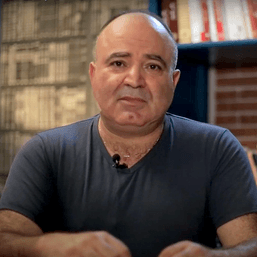
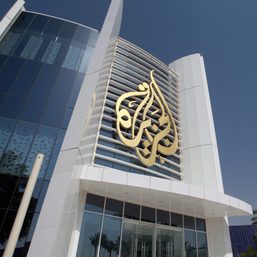

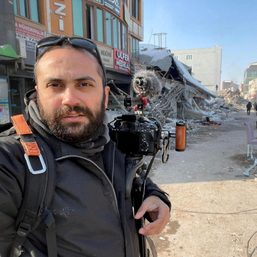

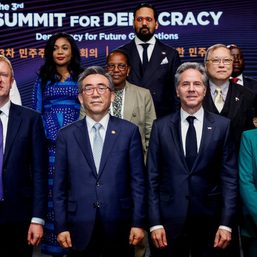
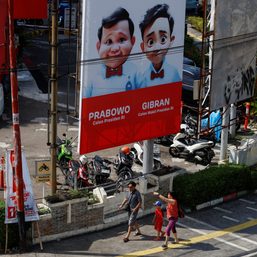

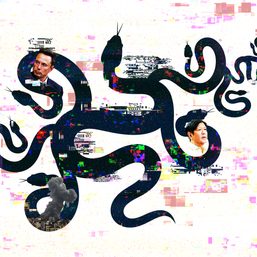
![[EDITORIAL] Threads, ang bagong designer drug sa ating public space](https://www.rappler.com/tachyon/2023/07/animated-threads-disinformation-accountability-carousel.jpg?resize=257%2C257&crop_strategy=attention)






![[Newspoint] Fake press, undeserved freedom](https://www.rappler.com/tachyon/2024/04/newspoint-fake-press-undeserved-freedom-April-5-2024.jpg?resize=257%2C257&crop=318px%2C0px%2C720px%2C720px)

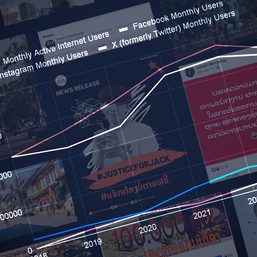
![[ANALYSIS] Investigating government’s engagement with the private sector in infrastructure](https://www.rappler.com/tachyon/2024/04/tl-gov-private-sectors-infra-04112024-1.jpg?resize=257%2C257&crop=435px%2C0px%2C1080px%2C1080px)
![[Newsstand] The media is not the press](https://www.rappler.com/tachyon/2024/04/tl-media-is-not-the-press-04132024.jpg?resize=257%2C257&crop=281px%2C0px%2C720px%2C720px)



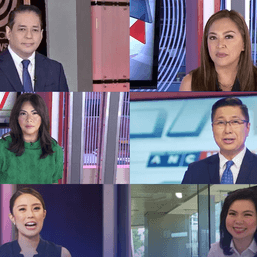

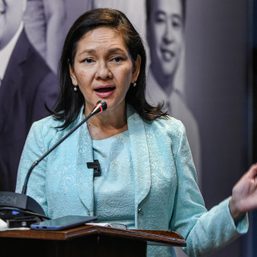
There are no comments yet. Add your comment to start the conversation.